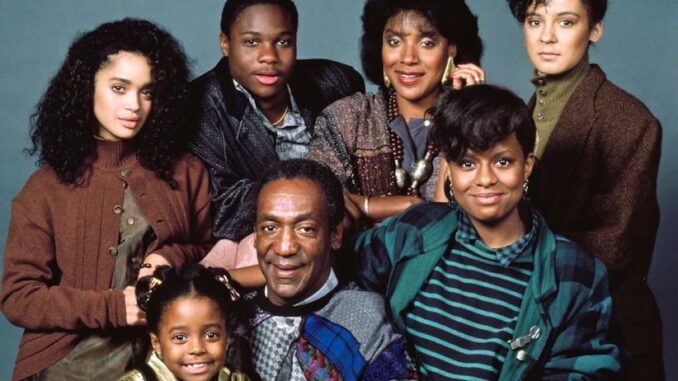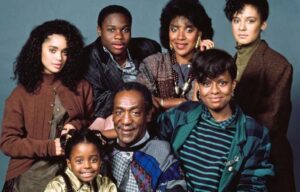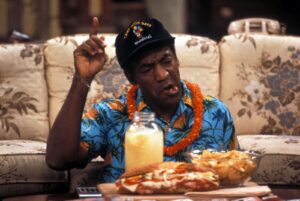
What makes `The Cosby Show’ TV’s top situation comedy?

“Togetherness” on TV is “in” again. If you’re one of the few Americans who have yet to sample The Cosby Show (NBC, Thursdays, 8-8:30 p.m.), the two final original episodes (not reruns) of the season — while not typical because they involve stars — still remain prime examples of the brand of winning purity which has made the series so unique that it finished the TV season as the top situation comedy.
In a segment with Tony Orlando as guest (May 2) the series veers away a bit from its usual intra-family affairs and concentrates on a silent, troubled abused child and the attempts to win him over. Since this episode was created as a showcase for Mr. Orlando for a possible future series of his own, it is a bit out of “The Cosby Show” mainstream. But even in this case, it follows the Cosby mystique — no complex story line; no phony emotional crises. Just honest situational laughs and intelligent restraint.
“The Cosby Show” is the coolest show on the air — but in its very sophisticated coolness, it somehow subtly projects old-fashioned familial values which used to be termed “togetherness.” (One of the problems of writing about all of this is the fact that while the word “togetherness” seems to be “in,” the word “in” is now out.)
More typical is the segment in which Lena Horne guests (May 9). Dr. Huxtable’s birthday is celebrated with a suprise visit to a hotel club in which Lena Horne entertains (she is one of his favorite people). The segment hinges on the element of surprise in the family. Cosby, in the character of Dr. Huxtable, says it all quixotically: “The joy of a birthday is finding out what the present is before one gets it.”

Lena Horne sings “I’m Glad There Is You” directly to Cosby, sitting at her private table, and then invites the whole family to her dressing room, to Cosby’s utter satisfaction. Later their “lonely” daughter indicates that she has become less lonely.
That’s about all there is. No sniggering laughs, no one-liners, no artificial devices to squeeze humor out of the situation. Just pure good writing (by Elliott Schoenman and John Markus), skillful direction (by Jay Sandrich), and near-perfect ensemble performances (by Phylicia Ayers-Allen, Lisa Bonet, Malcolm-Jamal Warner, Tempestt Bledsoe, Keshia Knight Pulliam, and Sabarina LeBeauf as the Huxtable family).
And then there is Bill Cosby, a man who integrates bits of his own character into his television persona so expertly that it all plays like real life. The viewer embraces the essential goodness and fairness of Dad Cliff (Cosby).
“The Cosby Show” does not try to make “pro-social” points in the area of race relations or any other area. It is simply a series about life in a special milieu — the upper middle-class family. Idealized a bit, of course, but still essentially true.
So, what makes “The Cosby Show” so great and so popular?
Ordinarily that question would require a two-part answer, since it is not often that quality and popularity go hand in hand in today’s television. But in the case of “The Cosby Show” the answers are the same: The complexity of familial love has been captured with astounding simplicity. America’s TV viewers believe — or at least want to believe — in the kind of love portrayed.
Bill Cosby feels that America is ready for his kind of laid-back, no-blubbering, casual family affection. That’s why he and his production company have been considering the possibility of starring Tony Orlando in a series spinoff. And there has also been talk of a Cosby-produced sitcom series for Lena Horne. Miss Horne has indicated that she is ready for such a series, but only if she can honestly portray the grandma that she is. Television is ready for senior citizens like Miss Horne. But will anybody believe that grand figure of a woman is actually a senior citizen?
